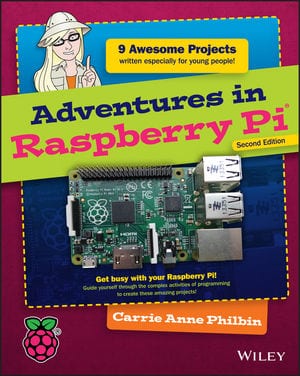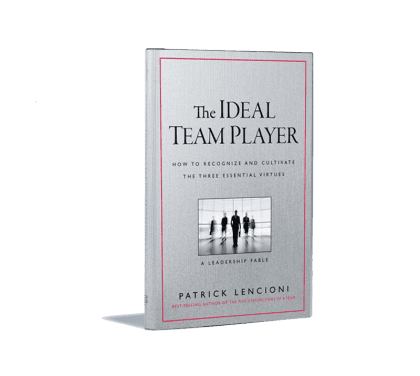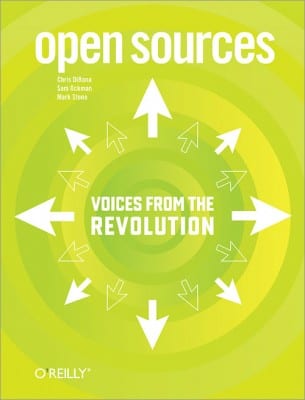We are approaching the middle of the year and it is the right time to recommend some great books. This list includes books on the history of open source, its culture and personalities, leadership and business, learning and playing with the Raspberry Pi, and even writing.
(The boy who could change the world: The writings of Aaron Swartz by Aaron Swartz)
Those who knew him remember him as someone who was funny, bright and as someone who thought deeply about everything. When news of his death was known in 2013, it seemed impossible that someone with such potential was not with us. He was a boy who could change the world and who was constantly frustrated that the world refused to change.
This book is a collection of some of his writings, where his idealism -with a tendency to innocence in his early years-, his brilliance and his achievements are represented. Because he achieved a lot, despite having started so young. The evolution of his ideas can be clearly seen, as well as his growing frustration and cynicism with slow progress..
Whether or not you agree with Aaron's ideas, this book contains insights free information, political corruption, collaborative content and various subjects of your interest. For those of the open source culture, these ideas run in parallel with topics of our interest worth spending a few hours reading.
(The practice of adaptive leadership: Tools and tactics for changing your organization and the world by Ronald A. Heifetz, Marty Linsky and Alexander Grashow)
What does a company do when it has a problem but the solution is not very clear, when it is a problem that could be solved in various ways depending on the situation and the attitudes of the people involved? In this book, the problems are called "adaptive challenges", where a person with authority or experience cannot successfully attack them by himself.
This person will require a carefully selected team or someone on the team to lead them. The open source method could be the approach to bring all stakeholders together, whether in an organization or an open community.
(Adventures in Raspberry Pi by Carrie Anne Philbin)
The Raspberry Pi Foundation recently celebrated its fourth anniversary and has sold more than 8 million units around the world since its launch. If you've wanted to try this little computer but don't know where to start, this book is a great option.
The book contains nine adventures to complete. The former help readers to familiarize themselves with the Raspberry Pi. The following cover creative computing, which teaches readers how to write code to compose music using Sonic Pi and how to build a protractor for a Minecraft game using a Python program. In the final adventure, readers will learn how to transform the Raspberry Pi into a jukebox to play music and display the song title on the screen.
(The ideal team player by Patrick Lencioni)
It's a quick, engaging, and informative read. A highly functional community is of utmost importance to the success of an open source project.
One of the keys to a highly functional community is teamwork. In this book, the author presents how to build a successful team with three virtues:
- Humble: lack of excessive ego or concerns about status.
- Hungry: people looking for and wanting more. More to do, more to learn, more responsibilities to assume.
- Intelligent: it simply refers to people's common sense.
If a person has two of these three virtues, at first glance he will see himself as an ideal player for the team but often his strengths hide his weaknesses; and in the book they classify these players:
- Humble and hungry, but not intelligent: The accidental disaster maker.
- Humble and smart, but not hungry: The lovable bum.
- Hungry and smart, but not humble: The clever politician.
Hiring a team member is important and the author offers practical insights in his book on how to interview for the ideal team member.
(My misadventure in the Star-Up bubble by Dan Lyons)
In his fifties and looking for a new career after leaving Newsweek, Dan Lyons decided to join the technology industry and joined HubSpot. This book is your opinion of your time with this company that develops and markets "inbound marketing" software.
Although the experience of "older working with millennials" has been featured as comedy in recent films such as "The Fashion Intern" (with Robert De Niro and Anne Hathaway) and "Offline Apprentices" (with Vince Vaughn and Owen Wilson ), Lyons' actual experience is not so funny. Likewise, he tells it in a humorous way because his time at HubSpot was absurd because the company behaved like a college fraternity and not a professional business. As diversity is a major issue in the technology and open source industry, his expertise is a panacea for pessimists convinced that there is nothing wrong with corporate mono-cultures that avoid anyone different.
(Open Sources: Voices from the Open Source Revolution)
With the contribution of thousands of programmers around the world, this is the spirit of the software revolution known as Open Source. Netscape has opened its code to Mozilla, IBM supports Apache, major database vendors have lent their products to Linux.
Now Open Source leaders join together for the first time to discuss the new vision of the software industry they have created. The book shows how this movement works, why it is successful and where it is going. It reveals the mysteries of how development builds better software and how companies can take advantage of open access software as a competitive business advantage.
If you have other recommendations, we invite you to mention them to learn more about this interesting world.





Thanks for the recommendations, they seem to be good books. And I appreciate you helping to prevent this from becoming FromWordPress.
I loved the note Ana, I prefer 1, 4, 5 and 6. But above all 5. I consider myself an average reader, I even have an ebook, but it never occurred to me to look for books like that…. you have opened my eyes! haha! Greetings from Cordoba, Argentina!
Totally agree haha
I think Free Software for a Free Society by Richard Stallman was missing another would be Free Culture Lawrence Lessig.
Greetings and congratulations on the article.
Totally agree with Artus.
Great recommendations from the author, although I find it strange that it is not: "The Cathedral and the Bazaar" By Eric S. Raymond.
I thought the books were open too ...
Thanks for the recommendations anyway!